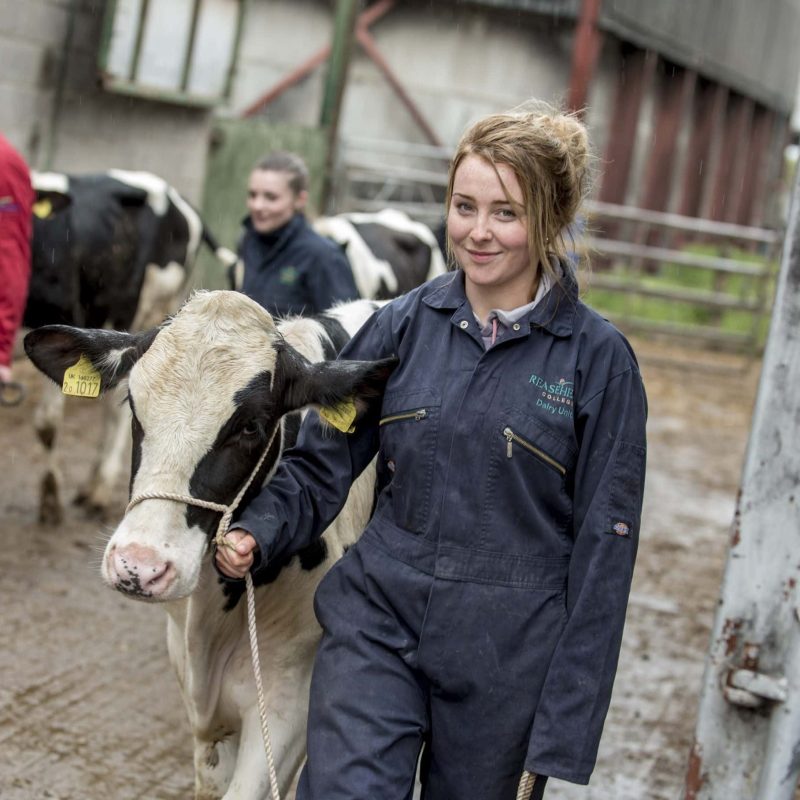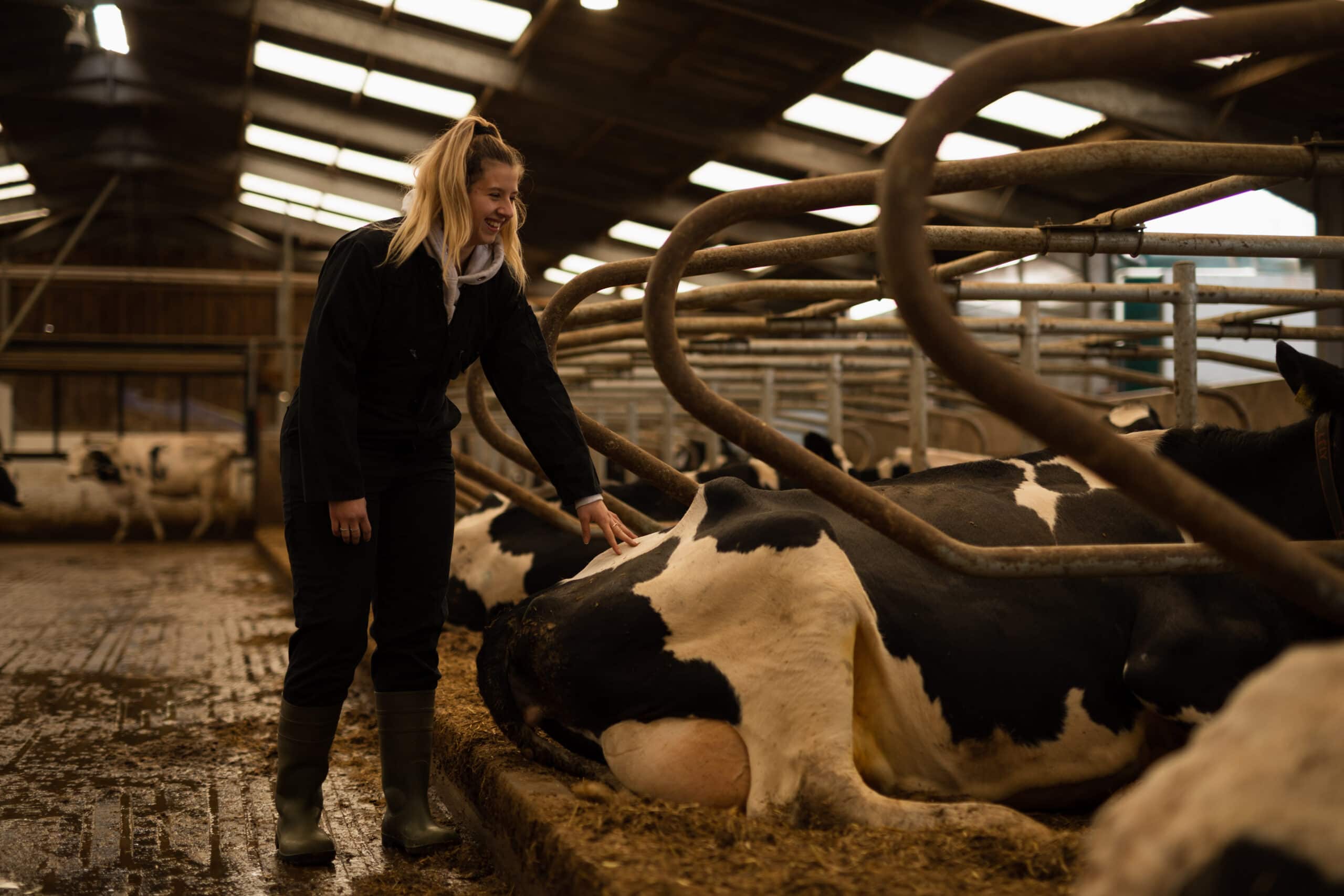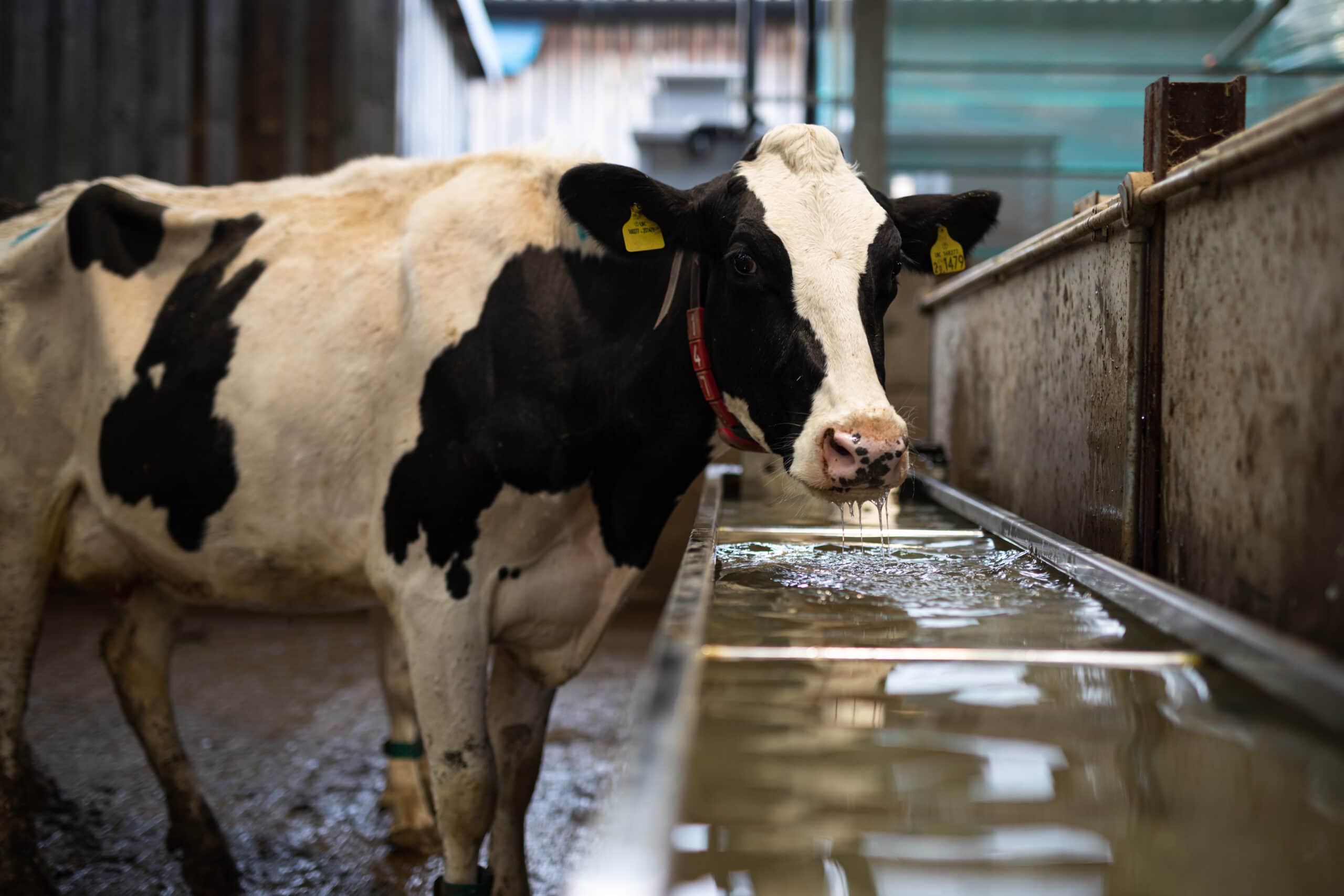Our society depends on farming and food production. Climate change, Covid-19 and skills shortages only reinforce the need for graduates with the passion and skills to make a difference.
Explore different management strategies in key areas, such as genetics, nutrition, health and welfare. Use this to learn how to ease the impact of production on global issues, such as food security and climate change with our Dairy Herd Management pathway.


No other institution champions sustainability and student self-sufficiency in the way that we do. Our agricultural courses equip you with the knowledge, insights, and ideas for an exciting career in the farming and food industries, helping to create a better future for us all.
With our passion for sustainability and innovation, combined with our commitment to high quality teaching and inclusive support, we will make sure you develop the understanding and industry-focused skills to achieve your ambitions and thrive in the sustainable agriculture sector.


This course can be followed by the one year BSc (Hons) Sustainable Agriculture Top-up to gain a full honours degree.
You will gain a wide range of management skills and academic knowledge which will help you to understand the scientific principles of dairy farming and efficient milk production, and enable you to make informed decisions to benefit your business.
The course is broken down into 12 Modules (all at 20 credits), which are completed over 2 years.
At Level 4 all Sustainable Agriculture students will study a suite of core modules which will provide the foundations in agricultural science and production to aid specialisation at level 5. Modules will include:
At level 5 students studying the Sustainable Agriculture with Dairy Herd Management pathway will study:
Overall workload
Your overall workload consists of class contact hours, independent learning and assessment activity, plus field trips. Your actual contact hours may depend on which optional modules you select, but the following information gives an indication of how much time you will need to allocate to different activities at each year of the course:
Year 1: 30% of your time is spent in timetabled teaching and learning activity
Teaching, Learning and Assessment: 360 hours
Independent Study: 840 hours
Year 2: 25% of your time is spent in timetabled teaching and learning activity
Teaching, Learning and Assessment: 260 hours
Placement: 150 hours
Independent Study: 790 hours
Class sizes are usually up 20 students.
Feedback
Feedback is supplied via Turnitin or directly from the module tutor. The majority of submissions are made via Turnitin and feedback for coursework is provided within twenty working days after the submission date.
Written feedback will be supported verbally should the student require clarification. Formative assessment feedback will be provided at the time of completion where possible, with more detailed summative feedback for reports.
Assessment Methods
Assessments are designed to encourage both academic and workplace skill development. They include a combination of coursework and timed assessments in both independent and collaborative formats. Coursework may take many forms including essays, reports, data processing, presentations, academic posters, seminar discussions, interviews, critical reviews and portfolios of evidence. Timed assessments will vary depending upon the nature of the module but will be problem-solving tasks dealing with real-life industry issues which support the development of industry and life skills.
Students will be able to access course timetables for the academic year in September.
Timetables are subject to change, but most students can expect to spend 3-3.5 days per week on campus.
During the level 5 module, Work Based Learning for the Land-Based Industries, students are expected to complete at least 150 hours of industry placements. This is completed alongside lectures and students are expected to attend all timetabled sessions.
This is a compulsory module; students are expected to secure the work experience opportunity with guidance and support from agriculture staff.
Financial arrangements will be left to the discretion of the employer, to be agreed with the student, where significant learning takes place and training is provided. The value of this experience must be taken into consideration.
Tuition Fees
As a student at UCR, you will have two main costs to meet; your tuition fees and living costs.
Our full-time tuition fees for UK and EU students, entering University, can be found on our student finance page. These fees are charged for each academic year of a course and are set by the college annually.
Tuition fees for international students can also be found on our student finance page.
Additional Costs
All resources will be available through the college library or VLE as E-Books, therefore there is no formal requirement to purchase textbooks. Although a list of recommended texts can be provided. We promote the use of online journals, webinars and podcasts.
Some shows and field trips may have small admission fees (usually £10-20). There may also be opportunity to attend industry events and conferences, the costs of which vary depending on event, but of course are optional.
Students may also get the opportunity to join a UK or international study tour, which usually cost £150-£1,500 depending on location and duration.
Equipment Costs
Students are responsible for everyday stationary, access to a laptop and PPE (steel-toe wellies, overalls and warm clothes) for external visits. For biosecurity purposes, all PPE for the campus farm will be provided.
Warm clothing and waterproofs are important for an external visit.
Prices of equipment are subject to change dependent on retailer.
Apply directly through UCAS
A minimum of 64 UCAS points
September 2022
September 2023
Full-time: 2 years
Here you will find useful information about the services and support available at University Centre Reaseheath. Click to expand each item:
University Centre Reaseheath is committed to providing additional financial support to those who need it. To find out about the bursary schemes available visit the additional financial support pages.
For students to get the best out of their time at University Centre Reaseheath, we must both recognise that we owe obligations to each other. These obligations are set out in our UCR Student Contract. Before you accept an offer of a place at University Centre Reaseheath, it is important that you read these contract conditions. If you are going to be living in Halls of Residence, you will also need to read the Student Accommodation Licence Conditions. Both of these contracts can be found here.
Click here to view the University Centre Reaseheath Student Protection Plan.
All UCR students are given the opportunity to apply for residential accommodation. First year students are guaranteed accommodation and this offer is made to all applicants who live more than a reasonable daily travelling distance from Reaseheath (providing you have applied before the UCAS equal considerations deadline. For full details on our halls of residence visit our accommodation page.
We have a team of dedicated professionals on hand to offer you support. These include our Student Services Team, Inclusive Learning Team, Library and Learning Resources Team and the Reaseheath Careers Service. You can find more information on the support provided at Reaseheath on our support page.
University Centre Reaseheath is proud to welcome international students. For more information, please visit our international students page.